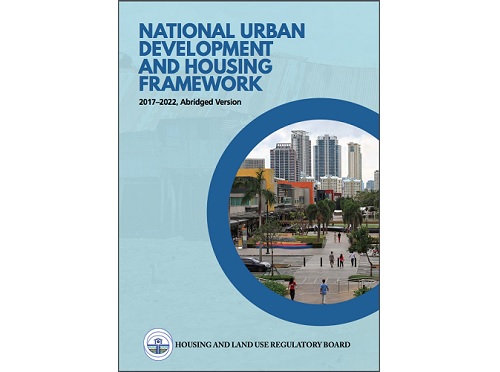
March 21, 2018 Wednesday

March 21, 2018. Climate change resilience should be the base for spatial structuring and sectoral development in the country, according to the 2017–2022 National Urban Development Housing Framework (NUDHF) recently released by the Housing and Land Use Regulatory Board (HLURB).
The NUDHF, first crafted in 1993, is the development framework for urban and urbanizing areas aimed at achieving the objectives of the Urban Development And Housing Act. It addresses the need for an overall framework for policy and strategy, based on a clear urban development vision.
The Climate Change Commission (CCC), as the lead policy making body on climate change, provided inputs to the development of the new NUDHF, which seeks to usher in a new urban development paradigm based on current realities and anticipated impacts of urbanization.
“Urbanization and climate change are the two most important themes that are shaping global development. We commend the HLURB for taking a proactive stance by mainstreaming climate change in the country’s urban development and housing agenda,” CCC Vice Chair and Secretary Emmanuel de Guzman said.

The updated NUDHF integrates climate change resilience in planning and decision-making for spaces such as neighborhoods, settlements, development areas, cities, municipalities, provinces, and regions.
“The new framework aims to integrate climate change adaptation and mitigation and disaster risk reduction in the Comprehensive Land Use and Development Plans of our communities,” De Guzman said. “It mandates local government units to design public spaces in a way that supports disaster risk reduction and climate change action,” he added.
Aside from the development climate-smart and disaster-resilient public spaces, the updated NUDHF also promotes the development of climate-resilient housing, drainage networks, and related infrastructure. It espouses the use of climate change vulnerability and disaster risk assessments, renewable energy programming, and health impact assessments to build the resilience of critical infrastructure assets.
With emphasis on the role of urbanization in creating growth and the need for climate resilient communities, the new NUDHF is intended to guide the efforts of the Philippine government, private sector, and other stakeholders in improving the performance and efficiency of the country's urban systems.
The new NUDHF is founded on Sustainable Development Goals (SDG), specifically SDG 11 that aims to make cities and human settlements inclusive, safe, resilient, and sustainable.